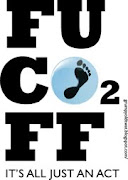The report, which was carried out for the European Commission by an independent group of international experts, "found no evidence that the global drug problem has been reduced during the period from 1998 to 2007".I'm not going to get my hopes up that this will actually bring about sane policies any time soon since the idea of legalising drugs is so abhorrent to such a large portion of the population in many nations that it's probably a bigger vote loser than, well, maybe even bigger than Gordon Clown himself. And the drug charity adviser agrees:
=============================================================================
While increased action has been taken against producers and sellers, the report noted that prices in Western countries "have fallen since 1998 by as much as 10 to 30 per cent".
=============================================================================
"The most harm comes from policies rather than from drugs," said Peter Reuter from the University of Maryland, who led the studies for the report.
=============================================================================
"It's been a failure and it's been a licence for impunity," said Genevieve Horwood, an adviser to the UK drugs charity Release. "It has been a failure in the sense that the world drug problem has increased and in the sense that new consequences and problems have arisen as a result of the enforcement-heavy and supply reduction-heavy decade," she added.
=============================================================================
In a paper prepared for the summit, [executive director of the UN Office on Drugs and Crime Antonio Maria Costa] said "international controls" had been an "undeniable success", but admitted it had also had a "dramatic unintended consequence: a criminal market of staggering proportions".
Ms Horwood is not confident that the meeting will result in a shift in the UN's drug policy. "I think they will rubber-stamp another 10 years of failure," she said. "Ideally I'd like them to commit to reviewing the goals of the international drug policy, to have a real review of not only its implementation but its goal, and find a more humane, rights-based, health-based drug policy to move forward with."Couldn't agree more, which doesn't happen often with charity spokestypes, but it's hard to argue otherwise. Ten years of "getting tough", arguably a damn sight more than ten year actually, and where has it got us? Back to square one? I'd say we haven't even got all the pieces on the board yet and are still arguing over the rules of the game. As a result the drugs trade, which has never gone away, is controlled by vicious criminals who'll adulterate the product with any old shit and tough luck if it kills the end user (though they really don't want users dead since they would obviously stop buying). I can't understand why it is that everyone can agree that the US experiment with prohibiting a popular drug was an utter failure but that so many think the same approach will work now on different drugs. Then as now the situation is simple: if you ban a commodity that people want anyway sooner or later someone will find a way to fulfil that demand and a black market will form, and that will attract the usual criminal activities. The simplest way to destroy the black market is, as the US eventually found in 1933, to lift the ban. How much criminal activity surrounds the use of that particular drug today? Compared to the drugs controlled by black markets practically zero. It has it's problems, both health and public order, but by and large society can cope.
I should state an interest at this point, which paradoxically is practically none at all. I've tried a couple of drugs in my younger days and decided that on the whole it wasn't for me. I've taken nothing illegal in twenty years (except briefly by hospital prescription after an operation) and have no interest in doing so in the foreseeable future. I don't even smoke anymore and I drink in moderation. So I can honestly say that I don't support legalisation just because I want to get off my dial without risk of being nicked for it. I'm inclined to think that taking drugs is probably not a good idea, but if anyone else wants to waste their hard earned cash on stuff to stick up their nose or into their veins or whatever it's up to them. As long as they're not nicking my DVD player to pay for it they can use whatever they like to kiss goodbye to their brain cells as far as I'm concerned. So my interest? Well, as a tax payer I'm interested in a policy that fucking works rather than one that creates and supports a black market run by criminals. We sure as hell don't have that at the moment so trying more of the same makes no sense. Legalisation may not work of course. I realize that some complex problems cannot be solved simply by doing the reverse of what caused them but, as the cliché goes, the best definition of insanity is to carry on doing the same things in the expectation of something different happening. I can't hope that this is anything more than the beginning of that debate, but perhaps the words of John D Rockefeller Jr will soon become more widely known, especially to twats like this:
When Prohibition was introduced, I hoped that it would be widely supported by public opinion and the day would soon come when the evil effects of alcohol would be recognized. I have slowly and reluctantly come to believe that this has not been the result. Instead, drinking has generally increased; the speakeasy has replaced the saloon; a vast army of lawbreakers has appeared; many of our best citizens have openly ignored Prohibition; respect for the law has been greatly lessened; and crime has increased to a level never seen before.
Sound at all applicable to the drugs situation now?


















